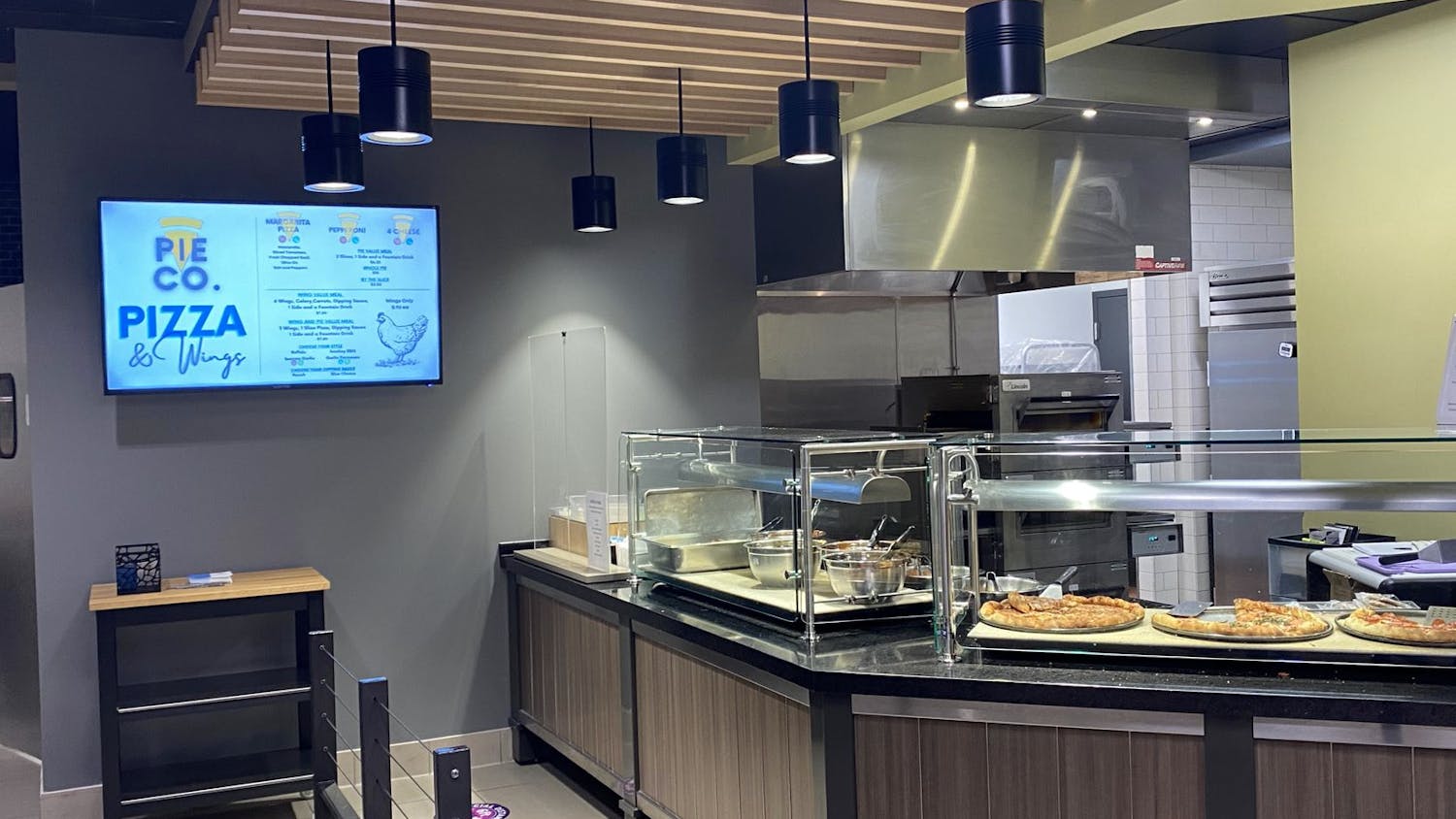In recent weeks, the Dining Commons (DC) has been utilizing styrofoam dishes, differing from the typical ceramic bowls and plates. This alteration is out of necessity — not climate irresponsibility.
Although the Larita Boren Student Center (Stu) has always served its food options with disposable dishes, it has been forced to adapt between several disposable dish suppliers.
The reason for this shift is complex. According to Nathaniel Malone, dining services director, the trickle-down effects of the COVID-19 pandemic are at the core of this complexity.
When the pandemic hit the country, supply chains across the country were affected and several large companies went out of business.
“Despite numerous supply-chain upheavals inflicted by disasters in the last decade — including the eruption of a volcano in Iceland, the Japanese earthquake and tsunami, Thailand floods, and Hurricanes Maria and Harvey — most companies still found themselves unprepared for the Covid-19 pandemic,” an article from the Harvard Business Review said.
Taylor dining services used several suppliers to provide disposable containers for food, especially in the Stu.
“We were constantly having to buy different container products, like okay, we used to use this vessel at Dashi, but that is not available anymore. … That was the thought process we went through,” Malone said. “We went through cycles of different disposables to try to meet the demand because we still have to meet the demand.”
There has also been a fluctuation in waste at the DC. Malone spent several years working in sustainability within his career path; he deeply values climate responsibility and finds using styrofoam frustrating.
His goal has always been to never use disposable dishes in the DC.
“It is really important to us that we don't have anything that causes a sustainability impact beyond the use of china, silverware and glasses,” Malone said.
However, there is aging infrastructure involved. The dishwasher in the DC was out of operation for nearly three weeks, leaving Malone’s team with no way to clean dishes. Because of this, there was a surge in the use of styrofoam disposables.
According to senior Michaela Stenerson, president of the Stewards of Creation Club at Taylor, the use of styrofoam causes an uptick in an organization's carbon footprint.
Stenerson offered a way to combat this.
“There is an option to offset the use of styrofoam things,” Stenerson said. “A lot of climate care organizations work to zero out their carbon impact. Sometimes if people fly somewhere, then they’ll plant as many trees as it takes to fly somewhere, in terms of carbon.”
The Stewards of Creation Club is active on campus and loves encouraging Taylor students to engage with the environment. Sometimes they display Planet Earth documentaries to implore individuals to care for creation.
“Caring for creation really starts with getting people excited about engaging with climate in the first place,” Stenerson said. “That is something that Stewards of Creation has really tried to do over the years. … Once people are excited about nature and getting into that, then I think it kind of shifts from that to educating others on how humans are impacting the planet.”
The club cares about more than the environment; they care about the effects climate irresponsibility has. Stenerson hopes to address issues of environmental racism and consumerism.
To do this, she encourages students to do their research. Stenerson recommends checking out a YouTube series called, “Global Weirding,” by Katherine Hayhoe.
“Some people think a little waste, like a plastic straw, can’t be a big deal, but it has to do with your personal ethics, and caring for creation offers a way to glorify God,” Stenerson said.
The club also publishes the GreenLetter, an environment newsletter that can be found in the student announcements.





